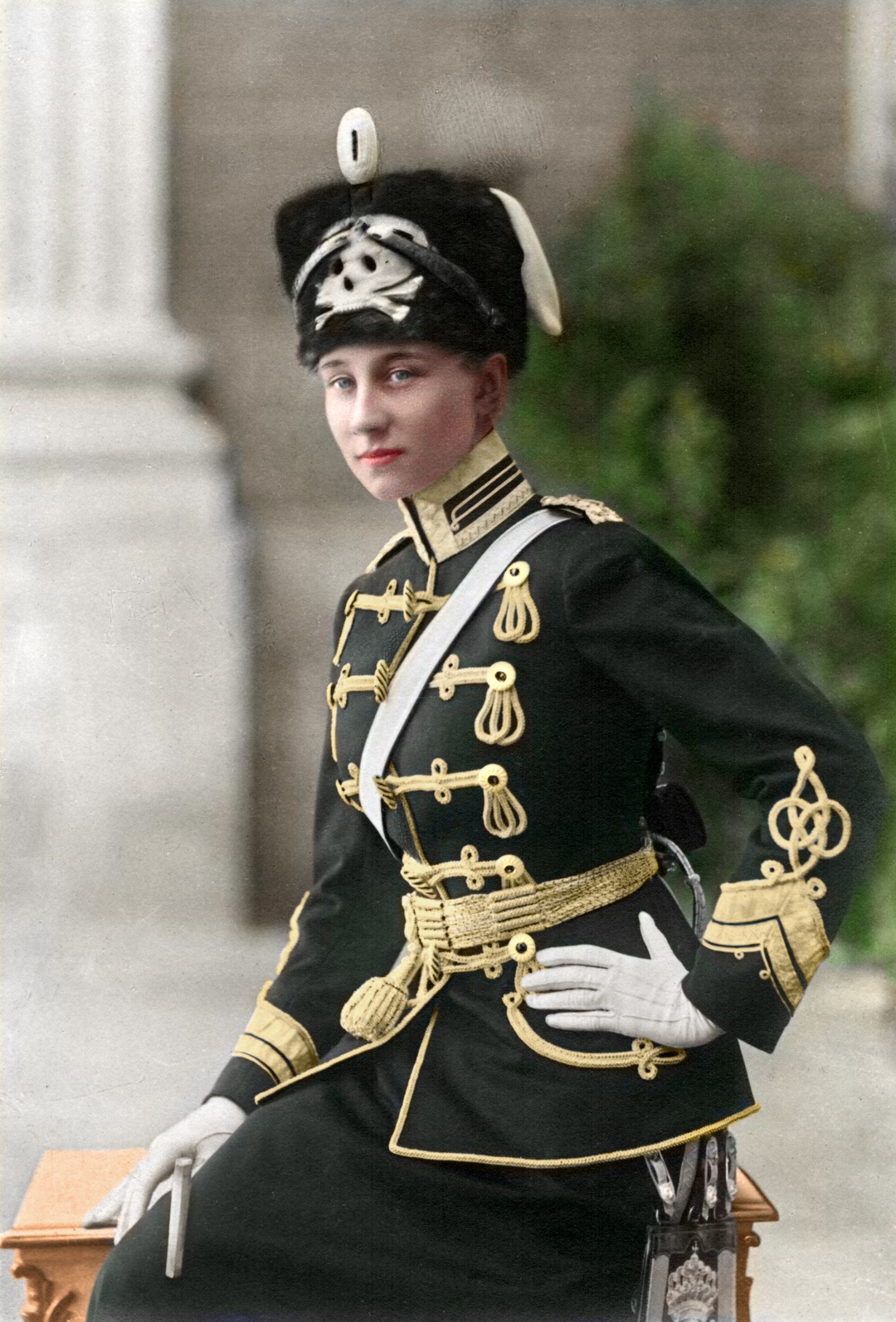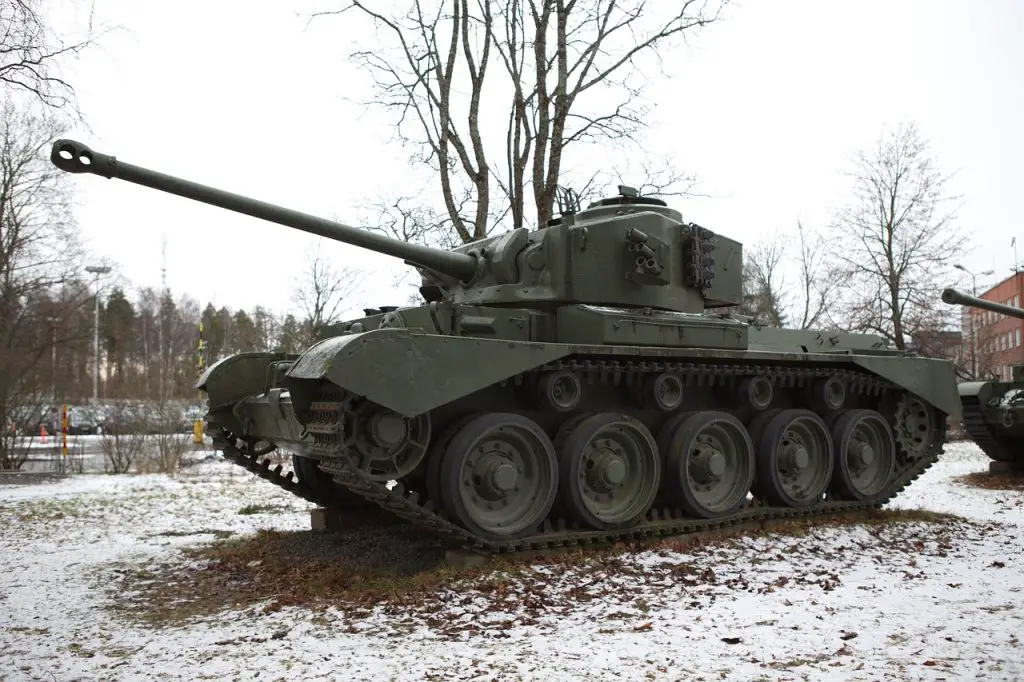 eing the youngest of seven children and the only daughter, little Sissy was daddy’s little girl. Of course, when daddy is German Emperor Wilhelm II (also known as Kaiser Bill) the father-daughter relationship is bound to be a little different than usual.
eing the youngest of seven children and the only daughter, little Sissy was daddy’s little girl. Of course, when daddy is German Emperor Wilhelm II (also known as Kaiser Bill) the father-daughter relationship is bound to be a little different than usual.
Proud (Royal) Parents
Strikingly smart like her grandfather Frederick III, elegant like her mother Empress Augusta Victoria, headstrong and incredibly stubborn like her father, Viktoria Luise Adelheid Mathilde Charlotte of Prussia (Sissy for her parents, Mouse for her brother Oskar) was no wallflower: she enjoyed being the center of attention and was her father’s favorite.
“After six sons, God had given us our seventh child, a small but very strong little daughter. The pleasure over this little ray of sunshine was great,” her mother wrote in her diary. “Her father, who up to now had only wanted sons, was very happy and is marveling still,” she added.
The Kaiser was indeed very happy: Sissy was the apple of his eye, his special companion and pride.
The Prinzessin got away with antics the strict, imperious Kaiser would have never forgiven his other children: unlike her brothers, who were often scolded for their escapades, she could do no wrong in her father’s eyes.
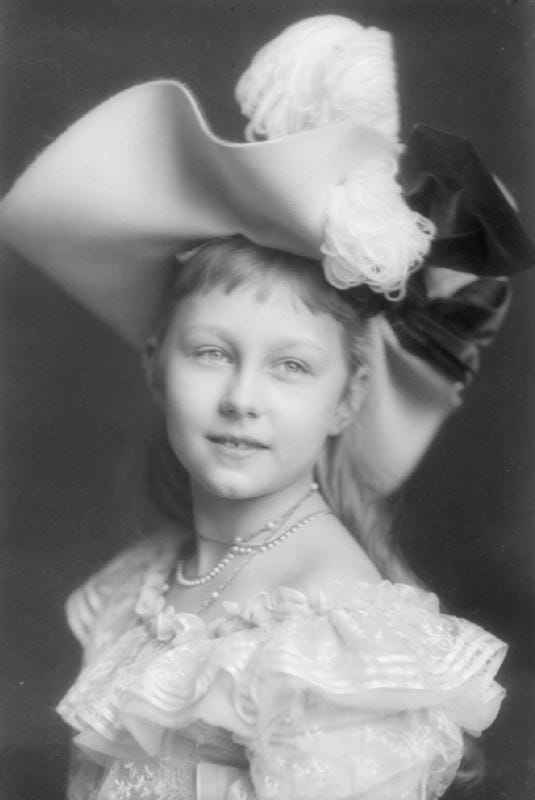
Tomboy Princess
With tons of energy, a big appetite, and a daredevil spirit, little Viktoria Luise sprinted through life at break-neck speed. She never learned to play the piano or paint, but she skated, tobogganed, chased frogs, slid down staircase banisters, and loved potato-sack races. From a very young age, she was also an accomplished hunter and rider.
There were few boys her age who could beat her in running or jumping, and when the Crown Prince’s tutor jeered at a boy for behaving like a Mädchen — a girl — it was easy for her to retort that one particular Mädchen could out-jump and out-run all his boys and that he better speak more respectfully of girls in the future.
Her governess described the little princess as friendly, energetic, and very much her father’s daughter.
She grew up striving to be like her brothers, who often made her march with a small wooden rifle; every time a young officer in uniform was invited to luncheon, Viktoria Luise sighed and loudly wished she could go to war and fight, too.
On a particular occasion, she was allowed to ride alongside the Kaiser to review a detachment of artillery bound for the Herero War: the night before, the Prinzessin could not sleep, mad with joy.
“She will ride at the head of the first regiment that invades England,” her father said, bursting with pride.
To her absolute delight, in 1909 she was made Colonel-in-Chief of the II Guard Hussar Regiment.
She wrote to her father: “When I lie in bed at night my heart beats with joyful excitement at the thought that, in four weeks, I am to lead my regiment past you. I can never thank you enough.” She added, “I have always regretted not having been a boy, so as to be able to join your army, but now at least I have been consoled by your gesture.”
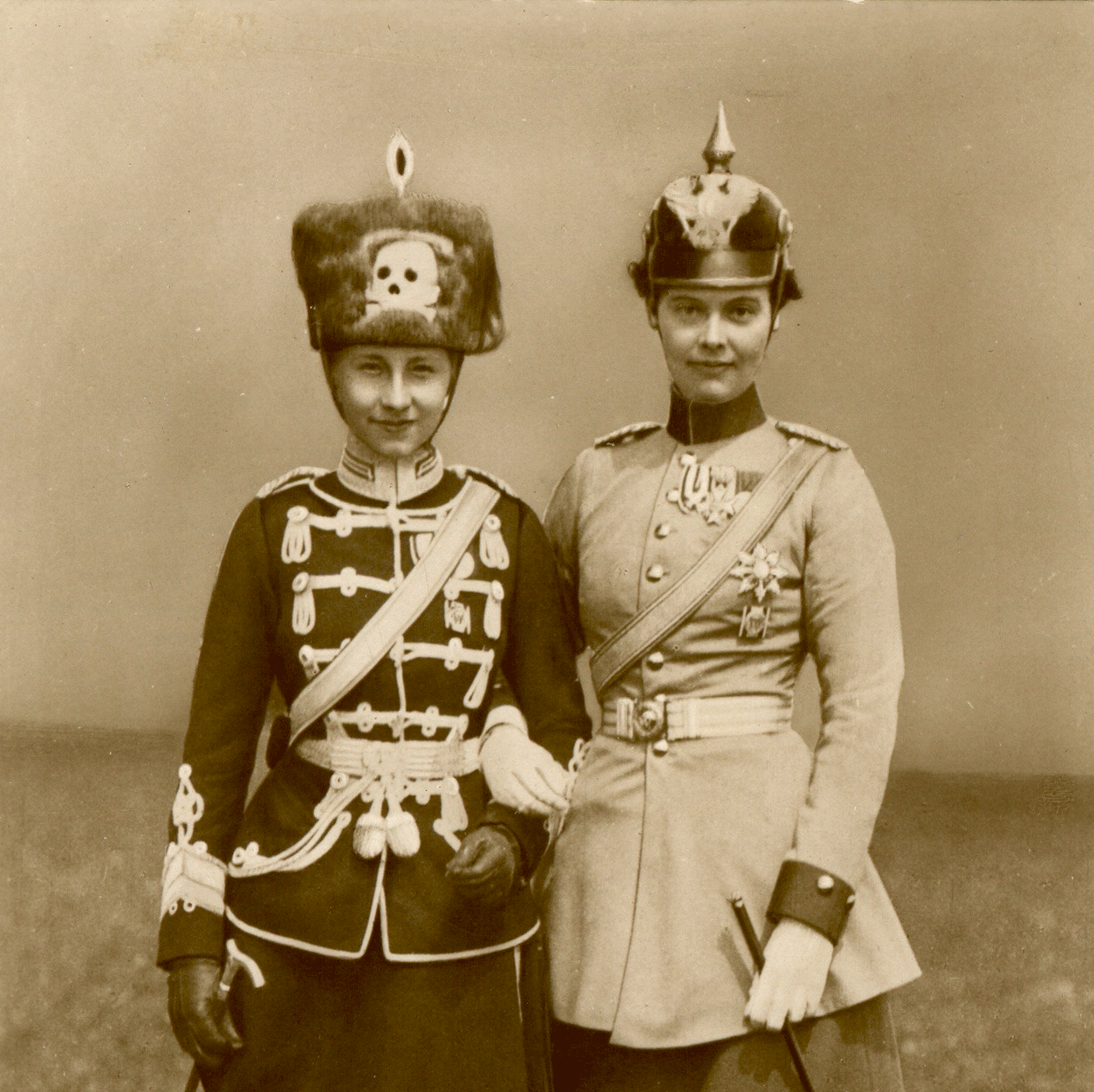
A Wedding and a Funeral
As Viktoria Luise grew older, pretty much every eligible prince in Europe was mentioned as husband material for her — with the exception of the one guy she eventually married.
When she was 20, the fiery Prinzessin fell in love – and she fell hard. The man she was determined to marry was a good-looking fellow named Ernst August, who just so happened to be the heir to the defunct throne of Hanover and, by chance, also her third cousin.
The circumstance in which they met wasn’t exactly the happiest: Ernst’s brother had died in a car accident, and the Kaiser had sent two of his sons to attend the funeral. Ernst had come to Berlin to personally give his thanks. The young Viktoria Luise offered to show him her thoroughbreds to cheer him up: he had just lost his brother, after all, and he looked quite stiff and uncomfortable.
The two of them hit it off right away.
“It was love at first sight. I was all fire and flame,” she wrote. Ernst, as it turned out, felt the same about her.
Viktoria Luise’s mother cautiously noted in her diary that the young man had certainly made an impression on her. “God knows whether it will ever come to anything,” she wrote.
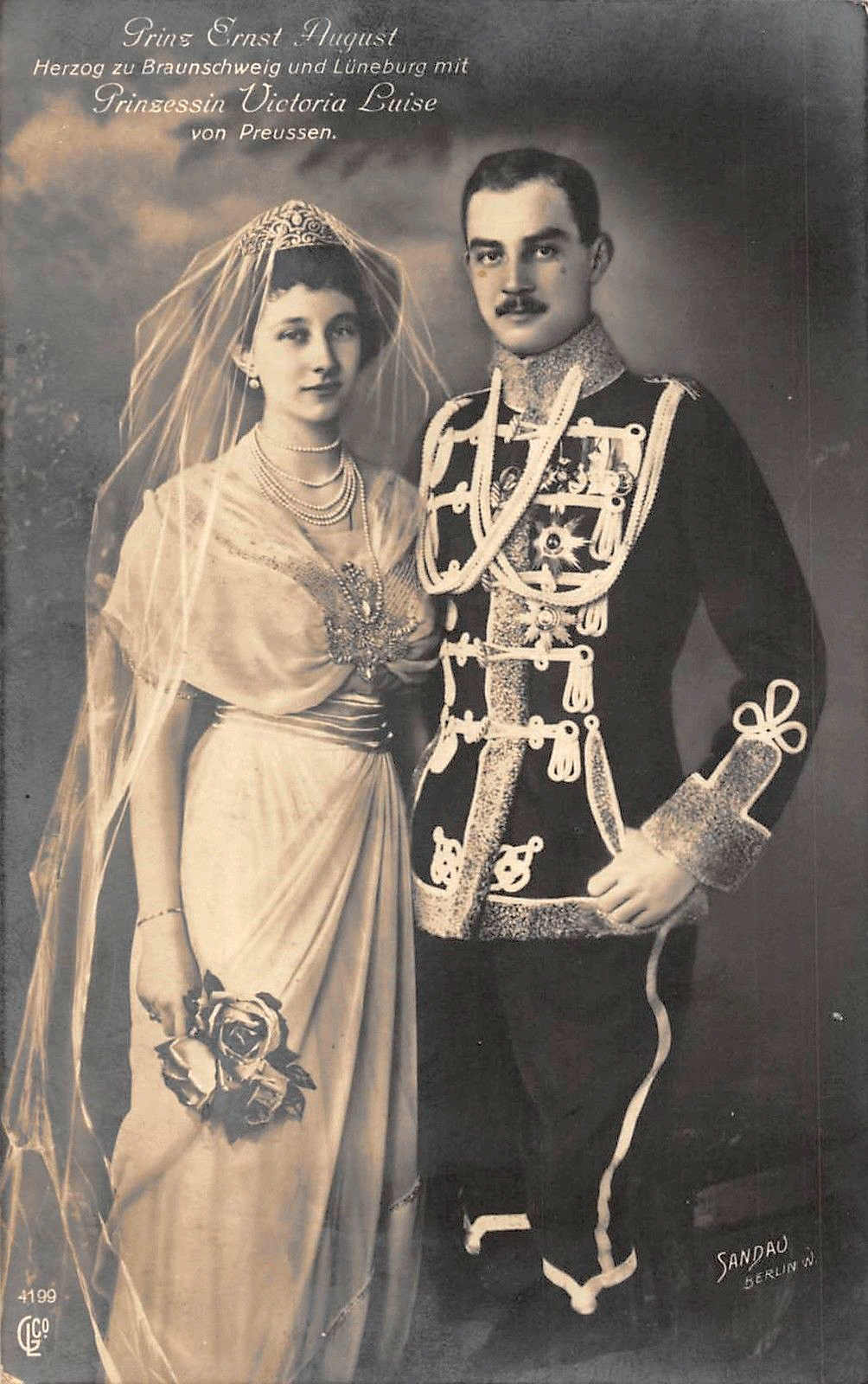
A Fairytale Love Story
Viktoria Luise’s choice of husband proved to be exceptionally (maybe even suspiciously) convenient for the Kaiser.
Ernst August had powerful connections to almost every ruling house in Europe (he was a first cousin to both King George V of the U.K. and Nicolaj II of Russia), but his family had a – well, complicated relationship with the German monarchy – to say the least.
Ernst’s father was known in Germany as the “vanishing Duke” because he had the irritating tendency to disappear every time the Kaiser was around: he had been the implacable enemy of the Prussian Royal House since childhood.
There had been a feud between his family, the Hanovers, and the Kaiser’s family, the Hohenzollerns, ever since Hanover had been annexed to Prussia in 1866. The annexation had put an end to the Hanoverian crown, and the Hanovers were definitely not happy about it.
The Kaiser, whose previous attempts at reconciliation had failed, believed a wedding was exactly what was needed to end the quarrel between the two houses.
Star-crossed lovers
The Prinzessin’s sudden desire to marry her Hanover cousin was so utterly improbable (and such a godsend for the Hohenzollern family) that people started to wonder whether their romance had been fabricated.
Rumors also circulated that, in order to make sure his strong-willed, defiant daughter took an interest in the future Duke, the Kaiser had told her she could marry anyone she wanted, except for Ernst.
Given Viktoria Luise’s contrarian attitude, that would almost certainly result in her taking a liking to her cousin.
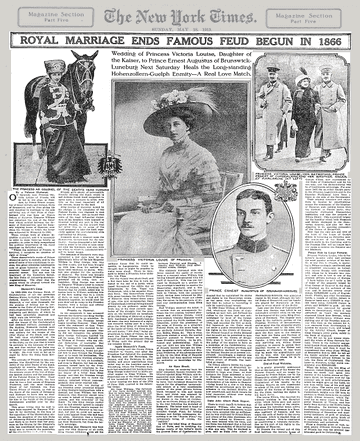
Their love story became wildly popular, and no wonder: it ticked all the boxes in terms of a fairytale romance.
Handsome young lovers? Check.
Rival families? Check.
Decades-long hatred that would heal through their marriage? Check.
The press had an absolute field day with it: the Times described their union as a Romeo-and-Juliet situation, but with a less bloody conclusion.
To marry Viktoria Luise, Ernst was asked to give up his claims to Hanover and to settle for the smaller Duchy of Brunswick — which added to the whole ‘star-crossed lovers’ situation.
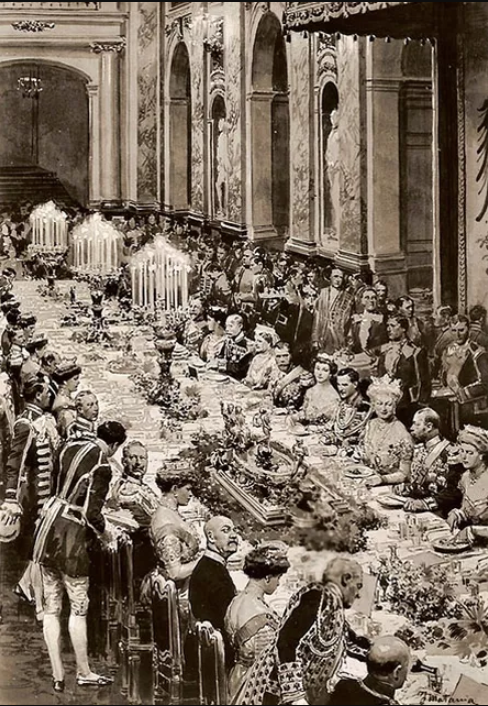
The Party Of The Century
The wedding took place in 1913 in Berlin, and it was the largest gathering of reigning monarchs in Germany since German unification in 1871. It turned into a massive media event: for the first time in history, film cameras recorded a royal wedding.
Even by Edwardian standard, it was an outrageously lavish affair: 1,200 people attended, and an unprecedented collection of kings, queens, princes, princesses, grand-dukes and dukes gathered to see the young couple tie the knot. Tsar Nicolaj II had arrived on a special armored train to attend along with King George V and Queen Mary.
A brightly decorated Zeppelin hovered in the sky, dropping flowers on the crowd: thousands of people swarmed the streets of Berlin cheering, waving flags, and hoping to catch a glimpse of the couple.
This would be the last great social event of European royalty before Europe was plunged into the chaos of the war the following summer.
It’s bizarre to think that Wilhelm, Nicolaj and George, the same three monarchs who would soon lead their countries against each other in a devastating bloodbath, were chatting over turtle soup at the same table just the year before WWi began, amongst the sparkle and glitter of diamonds and crystal candelabras.
The Kaiser made the toast. “My darling daughter,” he said, “today, as you leave our house, I want to thank you from the bottom of my heart for all the joy you have given me and your mother, and for the ray of sunshine which you have been in our house.”
The happy couple spent the honeymoon climbing mountains and walking in the woods. Less than a year later they welcomed the first of their five children.
The Beginning Of The End
Just a few months later, Archduke Franz Ferdinand and his wife Sophie were assassinated, pushing Europe into the horrors of the Great War.
Viktoria Luise’s husband and all of her brothers were now fighting at the front, and she began to fill her time with the care of the wounded soldiers: their home, Brunswick Palace, became a hospital. At Christmas, her husband wrote to her, grieving about the fact that “Today is Christmas Eve and we three are separated”.
From that moment on, tragedy after tragedy hit Viktoria Luise’s family.
WWI did not go well for them, as they ended up losing not only the war, but also their crowns and all of their titles: in November 1918, the Kaiser abdicated and fled to the Netherlands, and the German Empire came crumbling down; Viktoria Luise fell ill with the Spanish flu, and revolutions rocked the country.
As soon as she recovered, she and her family escaped to Bavaria and then went on to Austria: they finally moved in with Ernst August’s parents. In 1919, Viktoria Luise gave birth to their fourth child.
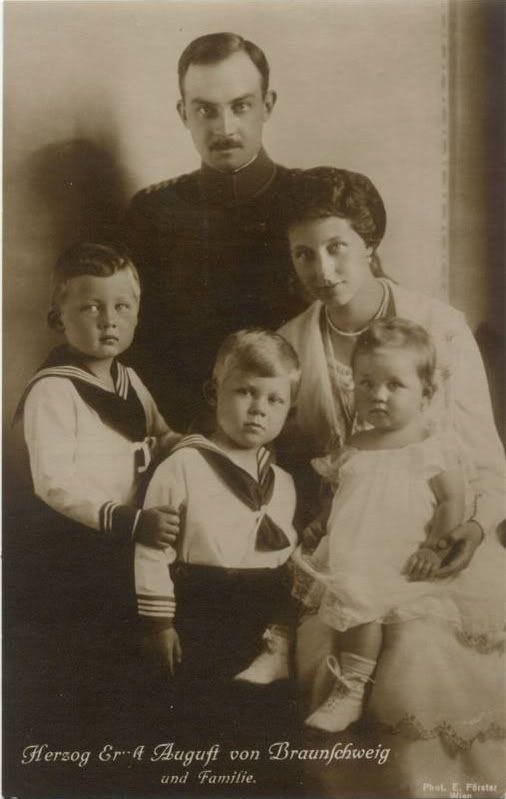
In March 1920, Viktoria Luise was at last allowed to visit her parents. Wilhelm II lived out the rest of his life in exile in the Netherlands, but the loss of the Empire and their way of life proved to be too much for his wife. She died in 1921 at the age of sixty-two, and her death devastated her husband and children.
A double tragedy struck: as Empress Augusta Victoria was on her deathbed, the reunited family received the news that Viktoria Luise’s brother, Prince Joachim, had killed himself: his marriage had fallen apart and he could not tolerate the loss of his royal position.
Viktoria Luise’s father’s decision to remarry not even two years after his wife’s death — to the much younger and widowed Hermine Reuss of Greiz — did not sit well with her: she tried to dissuade him and refused to attend his second wedding, despite loving her father dearly.
Nazism On The Rise
Unlike some of their relatives, Viktoria Luise and Ernst refused to ally themselves wholeheartedly with Hitler, because they still hoped England and Germany would reconcile.
Hitler tried to take advantage of their desire and attempted to push a marriage between Princess Friederike, their daughter, and the Prince of Wales (the future Edward VIII) to facilitate a German alliance with the U.K. Had the plan succeeded, who knows what would have happened: maybe the Prince of Wales would never have met Wallis Simpson, never abdicated, and – given his sympathies for Hitler – maybe the UK would have been allied with Germany.
But Viktoria Luise and her husband refused, since Friederike was twenty-three years younger than the Prince and had zero intention to marry him. Friederike went on to marry the future King Paul of Greece: she’s the mother of former King Constantine II of Greece and Queen Sofía of Spain.
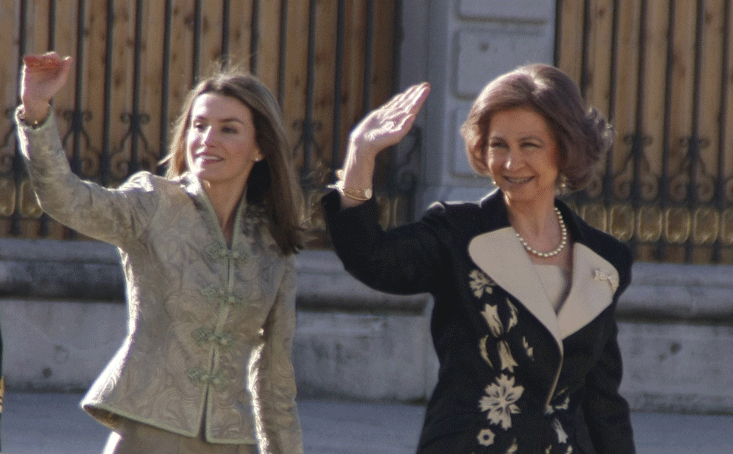
Not A Sweet Old Lady
WWII threw things into turmoil again: Viktoria Luise’s sons went off to war against their cousins, just like their fathers before them. She threw herself into charity work, supporting philanthropic causes and promoting restoration projects.
In the early 1950s, her husband Ernst’s health began to fail. He told his doctor, “I’ve lived a wonderful life, and I want to go through the remainder courageously.”
He died in 1953 with Viktoria Luise at his side.
The following year her older son, also named Ernst, turned Marienburg Castle — their house — into a museum, and Viktoria Luise was forced to pack her bags and leave.
She was, understandably, not pleased at all.
Her son wished her to retire quietly and withdraw from public life, but Viktoria Luise was no frail old lady he could easily persuade. He offered her several residences to live in, but his energetic (and still very popular) mother insisted on moving into a home provided to her by a society called the Brunswick Circle of Friends.
With the support of this group, she continued to be involved in her charitable works and wrote several books, including her own memoirs.
She died in 1980 at the fine age of 88: she was the last surviving child of Wilhelm II, having outlived her siblings by over 22 years. She was buried beside her husband in Hanover.

30-something, born and bred in Italy. If you leave me unattended in your house I will sand down and repaint every piece of furniture you own. Can’t parallel park to save my life.

